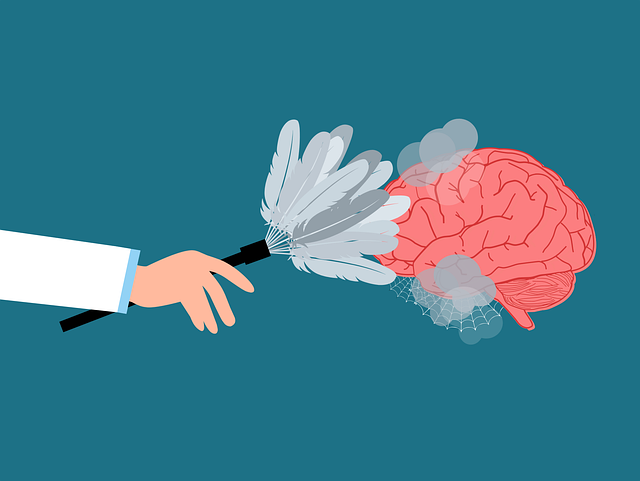Risk management planning is vital for specialized mental health treatments like Wheat Ridge Bariatric Evaluations Therapy (WREBT), ensuring patient safety and emotional well-being. Professionals must identify psychological, emotional, and physical risks, focusing on stress management due to surgery's impact on mental state. A comprehensive risk assessment framework considers coping skills, self-care, and triggers, promoting client participation in their care. Innovative strategies like Community Outreach Programs and policy advocacy ensure best practices, while regular reviews, updates, and staff training drive continuous improvement, enhancing the quality of WREBT services.
Mental health professionals face unique challenges, with risk management being an integral part of delivering safe and effective care. This article explores a structured approach to risk management planning, focusing on the specific considerations for Wheat Ridge Bariatric Evaluations Therapy. We’ll guide you through understanding risks, identifying them in therapy settings, creating robust assessment frameworks, implementing mitigation strategies, and ensuring continuous improvement. By following these steps, professionals can enhance patient safety and outcomes.
- Understanding Risk Management in Mental Health Practices
- Identifying Potential Risks and Hazards in Wheat Ridge Bariatric Evaluations Therapy
- Developing a Comprehensive Risk Assessment Framework
- Implementing Effective Risk Mitigation Strategies
- Continuous Monitoring, Review, and Improvement
Understanding Risk Management in Mental Health Practices

In the realm of mental health care, risk management planning is an indispensable tool to ensure safe and effective treatment. This involves identifying, assessing, and mitigating potential risks that patients and practitioners may encounter during therapy sessions, especially in specialized areas like Wheat Ridge Bariatric Evaluations Therapy. Effective risk management goes beyond adherence to regulatory standards; it focuses on fostering a therapeutic environment conducive to emotional well-being promotion techniques while minimizing hazards.
By integrating robust risk management strategies, mental health professionals can navigate complex patient populations and conditions. This includes addressing physical and psychological risks, ensuring patient safety during procedures, and managing potential adverse events. It also involves regular review and update of policies and protocols, as well as staff training to maintain a culture of continuous improvement in risk mitigation practices, ultimately enhancing the overall quality of care delivered, including Wheat Ridge Bariatric Evaluations Therapy services.
Identifying Potential Risks and Hazards in Wheat Ridge Bariatric Evaluations Therapy

Mental health professionals providing Wheat Ridge Bariatric Evaluations Therapy must be adept at identifying potential risks and hazards that can arise during treatment. This includes psychological, emotional, and even physical dangers. Stress Management is a key component of risk management planning for mental health professionals, as bariatric surgery and subsequent weight loss can significantly impact a patient’s mental state. According to Mind Over Matter Principles, therapists must be prepared to handle increased anxiety, depression, and body image issues that may surface throughout the journey.
During these evaluations, it is crucial to consider various factors such as pre-existing psychiatric conditions, past traumatic experiences, and the potential for developing eating disorders or other behavioral health complications. Effective risk management requires a comprehensive assessment of each patient’s unique circumstances, enabling therapists to tailor interventions accordingly. This proactive approach ensures that patients receive the highest level of care while mitigating potential risks associated with bariatric evaluations and treatment.
Developing a Comprehensive Risk Assessment Framework

Mental health professionals face unique challenges when it comes to risk management, as they navigate complex emotional landscapes with their clients. A robust Risk Assessment Framework is therefore essential, providing a structured approach to identify and mitigate potential risks. This framework should encompass a holistic view of the client’s mental health, including psychological, social, and environmental factors. By integrating techniques from Wheat Ridge Bariatric Evaluations Therapy, professionals can delve into underlying issues, ensuring a comprehensive understanding of each individual’s unique risk profile.
The framework should facilitate a systematic process where professionals evaluate clients’ current coping skills, self-care routines, and potential triggers for mental health deterioration. Encouraging clients to participate actively in this assessment, including discussions around their Self-Care Routine Development for Better Mental Health, can provide valuable insights. Additionally, Public Awareness Campaigns Development can play a role in educating both professionals and the public about early intervention strategies, fostering a supportive environment that promotes better mental health outcomes.
Implementing Effective Risk Mitigation Strategies

Implementing effective risk mitigation strategies is a cornerstone for mental health professionals, especially in environments like Wheat Ridge Bariatric Evaluations Therapy where nuanced care is paramount. Beyond standard protocol, integrating innovative approaches such as Community Outreach Program Implementation can significantly enhance patient safety and well-being. By proactively engaging with the community, these programs foster open communication channels, enabling early detection of potential risks and facilitating timely interventions.
Moreover, Mental Health Policy Analysis and Advocacy plays a crucial role in shaping an adaptive risk management framework. Understanding and navigating regulatory landscapes ensures that practices align with current best practices and ethical standards. Additionally, Conflict Resolution Techniques are essential tools for addressing intra-professional conflicts that may arise, fostering collaborative environments where professionals can openly discuss concerns without compromising patient care.
Continuous Monitoring, Review, and Improvement

Effective risk management planning for mental health professionals involves a dynamic process of continuous monitoring, review, and improvement. Regularly assessing and evaluating patient progress is crucial to identify potential risks or changes in their mental health status. By implementing robust Wheat Ridge Bariatric Evaluations Therapy protocols, professionals can ensure that interventions are tailored to individual needs, minimizing the chances of adverse outcomes.
This ongoing cycle facilitates the integration of Mental Health Education Programs Design and Mental Wellness Journaling Exercise Guidance, allowing for proactive measures. Through meticulous review, professionals can adapt treatment strategies, incorporating innovative techniques as needed. Such practices not only enhance patient care but also contribute to anxiety relief, ensuring a comprehensive and responsive approach to mental health support.
Mental health professionals play a vital role in fostering well-being, but they also confront unique risks. As highlighted by the discussion on Wheat Ridge Bariatric Evaluations Therapy, a structured approach to risk management is essential for creating a safe and nurturing environment. By identifying potential hazards, developing robust assessment frameworks, implementing effective mitigation strategies, and committing to continuous monitoring, mental health practitioners can enhance patient safety and outcomes. This comprehensive risk management planning ensures that professionals are equipped to navigate challenges, ultimately providing high-quality care in a supportive setting.














